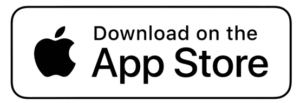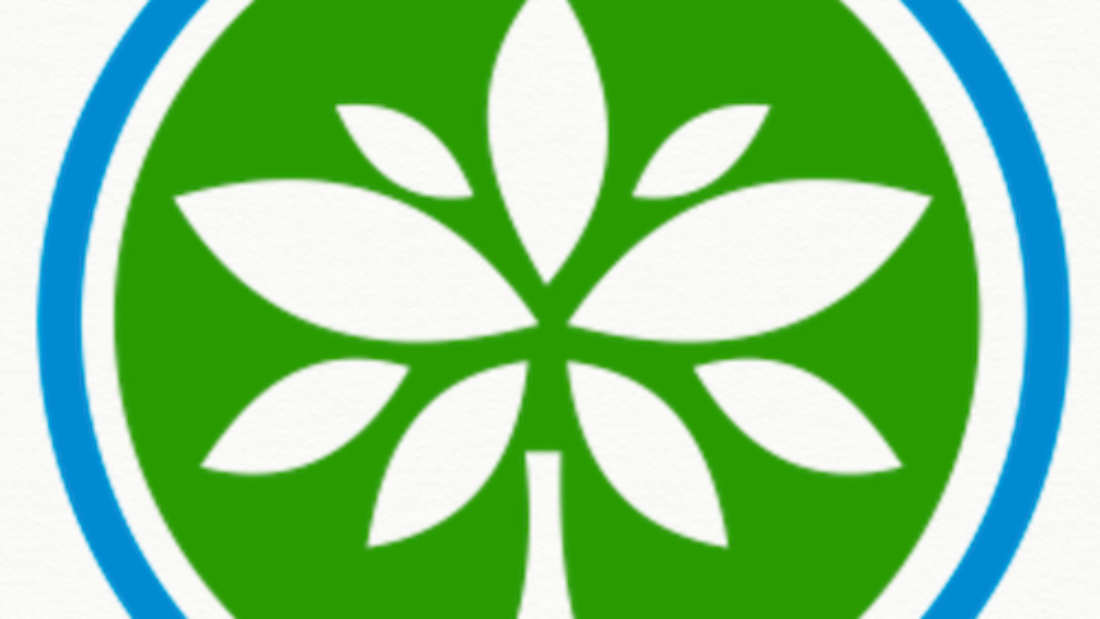fundsforNGOs – Grants and Resources for Sustainability
Grants and Resources for Sustainability
Poverty remains a significant challenge in Nigeria, affecting millions of people across the country. According to recent statistics, over 40% of the population lives below the national poverty line, struggling to meet basic needs such as food, shelter, and healthcare. This dire situation is exacerbated by factors such as unemployment, inadequate infrastructure, and limited access to education.
The rural areas are particularly hard-hit, where many families rely on subsistence farming and lack access to markets and financial services. The persistence of poverty not only hampers individual potential but also stifles national development and economic growth. The implications of poverty in Nigeria are profound.
It leads to a cycle of deprivation that affects health, education, and overall quality of life. Children from impoverished families often miss out on education, perpetuating the cycle of poverty into future generations. Additionally, poverty contributes to social unrest and insecurity, as individuals struggle to survive in an environment where opportunities are scarce.
Addressing poverty in Nigeria is not just a moral imperative; it is essential for fostering a stable and prosperous society.
Microfinance programs have emerged as a powerful tool for addressing poverty in Nigeria. These programs provide small loans and financial services to individuals who typically lack access to traditional banking systems. By targeting low-income individuals and small businesses, microfinance aims to empower the poor, enabling them to invest in income-generating activities.
This financial inclusion is crucial for fostering entrepreneurship and self-sufficiency among marginalized communities. In Nigeria, microfinance institutions (MFIs) have proliferated over the past two decades, driven by the recognition that access to finance can significantly improve livelihoods. These institutions offer various services, including microloans, savings accounts, and insurance products tailored to the needs of low-income clients.
The flexibility of microfinance allows borrowers to use funds for diverse purposes, such as starting a small business, purchasing equipment, or covering educational expenses. As a result, microfinance has become a vital component of the broader strategy for poverty alleviation in Nigeria.
The impact of microfinance on poverty reduction in Nigeria has been significant. By providing access to financial resources, microfinance empowers individuals to start or expand their businesses, leading to increased income and improved living standards. Many beneficiaries report enhanced economic stability and the ability to invest in their children’s education and healthcare.
This ripple effect contributes to breaking the cycle of poverty and fostering community development. Moreover, microfinance promotes financial literacy among its clients. Many MFIs offer training programs that educate borrowers on budgeting, saving, and managing their finances effectively.
This knowledge equips individuals with the skills needed to make informed financial decisions, ultimately leading to better economic outcomes. As more people gain access to financial services and education, the overall economic landscape of Nigeria begins to shift toward greater resilience and sustainability.
Despite its potential, microfinance in Nigeria faces several challenges that hinder its effectiveness in reducing poverty. One major barrier is the high interest rates charged by some MFIs, which can lead to over-indebtedness among borrowers. While these rates are often justified by the high operational costs of serving low-income clients, they can create a cycle of debt that traps individuals rather than liberating them.
Additionally, there is a lack of regulatory oversight in the microfinance sector. Some institutions operate without proper licenses or adherence to best practices, leading to exploitation and fraud. This lack of regulation can erode trust in microfinance as a viable solution for poverty alleviation.
Furthermore, many potential beneficiaries remain unaware of available microfinance services or are hesitant to engage due to cultural stigmas surrounding borrowing.
To enhance the effectiveness of microfinance in reducing poverty in Nigeria, several solutions can be proposed. First, it is essential to establish a robust regulatory framework that ensures transparency and accountability among MFIs. This framework should include guidelines for interest rates, lending practices, and borrower protection measures.
By fostering a trustworthy environment, more individuals may be encouraged to seek financial assistance. Second, increasing financial literacy programs is crucial for empowering potential borrowers. MFIs should invest in educational initiatives that teach clients about responsible borrowing and financial management.
By equipping individuals with knowledge and skills, they can make informed decisions that lead to sustainable economic growth. Additionally, partnerships between MFIs and local organizations can help reach underserved communities and raise awareness about available services.
The Lift Above Poverty Organization (LAPO) is a notable example of a successful microfinance program in Nigeria. Since 1992, LAPO has provided financial services to low-income individuals, with a focus on empowering women through microloans and training programs that enhance their entrepreneurial skills. As a result, many women have successfully started businesses that contribute to their families’ well-being and community development.
Another successful initiative is the Grameen Foundation’s work in Nigeria, which emphasizes social performance alongside financial sustainability. By integrating health services with microfinance offerings, Grameen Foundation addresses multiple dimensions of poverty simultaneously. Clients receive not only financial support but also access to healthcare resources that improve their overall quality of life.
These case studies highlight how tailored microfinance programs can create meaningful change in the lives of individuals and communities. By providing access to financial services and healthcare resources, microfinance programs can help alleviate poverty and improve overall well-being.
To maximize the impact of microfinance programs in Nigeria, several recommendations can be made for implementation. First, MFIs should prioritize client-centered approaches that consider the unique needs and circumstances of borrowers. This may involve offering flexible repayment terms or designing products specifically for different demographic groups, such as women or rural farmers.
Second, collaboration among stakeholders is vital for creating a supportive ecosystem for microfinance. Government agencies, NGOs, and private sector actors should work together to promote financial inclusion and develop policies that encourage responsible lending practices. By fostering partnerships and sharing resources, stakeholders can enhance the reach and effectiveness of microfinance initiatives.
In conclusion, microfinance holds significant promise for reducing poverty in Nigeria by providing access to financial resources and empowering individuals to improve their livelihoods. While challenges remain, targeted solutions such as regulatory frameworks and financial literacy programs can enhance the effectiveness of these initiatives. Successful case studies demonstrate that with the right support and approach, microfinance can create lasting change in communities across Nigeria.
As we look toward the future, it is essential for all stakeholders—government agencies, NGOs, MFIs, and communities—to collaborate in creating an inclusive financial landscape that prioritizes the needs of the poor. By harnessing the power of microfinance effectively, Nigeria can take meaningful strides toward alleviating poverty and fostering sustainable development for all its citizens.
Poverty remains a significant challenge in Nigeria, affecting millions of people across the country. According to recent statistics, over 40% of the population lives below the … [Read More…] about A Sample Proposal “Reducing Poverty in Nigeria Through Microfinance Programs”
Education is a fundamental human right and a powerful tool for social change, particularly for women and girls. Access to education not only empowers individuals but also … [Read More…] about Developing Proposals for Women and Girls’ Education Access
Rural youth empowerment is a critical aspect of fostering sustainable development in rural areas. Young people in these regions often face unique challenges that hinder their … [Read More…] about How to Structure a Proposal for Rural Youth Empowerment Initiatives
Menstrual health and hygiene is a critical yet often overlooked aspect of public health, particularly in low-income communities. This proposal aims to address the pressing … [Read More…] about A Sample Proposal “Hygiene Champions: Addressing Menstrual Health and Hygiene Gaps”
This proposal aims to address the pressing needs of orphans and vulnerable children in Bangladesh. These children face numerous challenges, including lack of access to … [Read More…] about A Sample Proposal “Supporting Orphans and Vulnerable Children in Bangladesh to Overcome Poverty”
In recent years, the conversation surrounding gender equality has gained significant momentum, highlighting the need for a comprehensive approach to address the disparities … [Read More…] about A Sample Proposal “Gender Lens: Building Awareness Through Media and Advocacy”
This proposal aims to address the pressing need for inclusive economic growth in Zambia, a nation rich in resources yet grappling with high levels of poverty and inequality. … [Read More…] about A Sample Proposal “A Sample Proposal “Inclusive Economic Growth for Poverty Reduction in Zambia”
Sports and recreation play a vital role in the development of young people. Engaging in physical activities not only promotes physical health but also fosters social skills, … [Read More…] about A Sample Proposal “Play for Change: Promoting Sports and Recreation Among Youth”
Malawi, a small landlocked country in southeastern Africa, faces significant challenges regarding the welfare of its children. Among the most pressing issues is the plight of … [Read More…] about A Sample Proposal “A Sample Proposal “Supporting Orphans and Vulnerable Children in Malawi to Escape Poverty”
Inclusive economic growth refers to a model of development that ensures all segments of society benefit from economic progress. It emphasizes the importance of equitable … [Read More…] about A Sample Proposal “A Sample Proposal “Inclusive Economic Growth for Poverty Reduction in Ghana”
This proposal aims to address the pressing needs of orphans and vulnerable children in India, a demographic that faces numerous challenges due to poverty, lack of education, … [Read More…] about A Sample Proposal “A Sample Proposal “Supporting Orphans and Vulnerable Children in India to Overcome Poverty”
Poverty and waste management are two pressing issues that significantly impact the quality of life in Uganda. This proposal aims to address these challenges through innovative … [Read More…] about A Sample Proposal “A Sample Proposal “Reducing Poverty Through Waste Management Solutions in Uganda”
Poverty remains a significant challenge in Kenya, affecting millions of individuals and families across the nation. According to recent statistics, approximately 29.2% of the … [Read More…] about A Sample Proposal “A Sample Proposal “Tackling Poverty in Kenya Through Financial Literacy Programs”
Before embarking on any project, it is crucial to have a clear understanding of its scope and objectives. This foundational step sets the stage for all subsequent planning and … [Read More…] about How can I develop a clear budget for a youth skill training project proposal?
Proposal writing is a critical skill for NGOs seeking funding, partnerships, or project support. Crafting a compelling proposal can mean the difference between securing vital … [Read More…] about Top 10 Proposal Writing Dos and Don’ts
In recent years, Nigeria has faced significant challenges, particularly in its remote areas where poverty and lack of access to essential services are prevalent. This proposal … [Read More…] about A Sample Proposal “Leveraging Technology to Alleviate Poverty in Nigeria’s Remote Areas”
Child marriage is a complex and pervasive issue that affects millions of children worldwide, particularly girls. Defined as a formal marriage or informal union before the age … [Read More…] about How to Write an Effective Proposal on Ending Child Marriage
Youth development is a multifaceted process that encompasses the physical, emotional, social, and intellectual growth of young individuals. As the world continues to evolve … [Read More…] about Writing a Proposal on Technology-Based Solutions for Youth Development
Access to safe and clean water is a fundamental human right, yet millions of people around the world still lack this essential resource. In rural communities, where … [Read More…] about A Sample Proposal “Safe Wells, Safe Lives: Ensuring Water Quality in Rural Boreholes”
In Bangladesh, the plight of single mothers is a pressing social issue that often goes unnoticed. These women, who may have become single due to divorce, abandonment, or the … [Read More…] about A Sample Proposal “Empowering Single Mothers in Bangladesh to Escape Poverty”
Maternal health is a critical aspect of public health that directly influences the well-being of families and communities. This proposal aims to address the pressing issues … [Read More…] about A Sample Proposal “Motherhood Matters: Supporting Maternal Health and Well-being”
Poverty remains a pressing issue in many parts of the world, and Zambia is no exception. This proposal aims to address the challenges faced by impoverished communities in … [Read More…] about A Sample Proposal “A Sample Proposal “Reducing Poverty in Zambia Through Social Enterprises”
Financial literacy is a crucial skill that empowers individuals to make informed decisions about their money. For youth, understanding financial concepts can significantly … [Read More…] about A Sample Proposal “Money Matters: Financial Literacy for Youth Empowerment”
In Malawi, single motherhood is a significant social issue that contributes to widespread poverty. Many women find themselves raising children alone due to various … [Read More…] about A Sample Proposal “A Sample Proposal “Empowering Single Mothers in Malawi to Overcome Poverty”
Poverty remains a significant challenge in Ghana, affecting millions of individuals and families across the nation. Despite the country’s economic growth over the past few … [Read More…] about A Sample Proposal “A Sample Proposal “Reducing Poverty in Ghana Through Social Enterprises”
Funds for NGOs
Funds for Companies
Funds for Media
Funds for Individuals
Sample Proposals
Contact us
Submit a Grant
Advertise, Guest Posting & Backlinks
Fight Fraud against NGOs
About us
Terms of Use
Third-Party Links & Ads
Disclaimers
Copyright Policy
General
Privacy Policy
Premium Sign in
Premium Sign up
Premium Customer Support
Premium Terms of Service

©FUNDSFORNGOS LLC. fundsforngos.org and fundsforngospremium.com domains and their subdomains are the property of FUNDSFORNGOS, LLC 140 Broadway 46th Floor, New York, NY 10005 United States. Unless otherwise specified, this website is not affiliated with any of the organizations mentioned above. The material provided here is solely for informational purposes only without any warranty. Visitors are advised to use it at their own discretion. Read the full disclaimer here. Unless otherwise specified, this website is not affiliated with any of the organizations mentioned above. The material provided here is solely for informational purposes only without any warranty. Visitors are advised to use it at their own discretion. Read the full disclaimer here.









